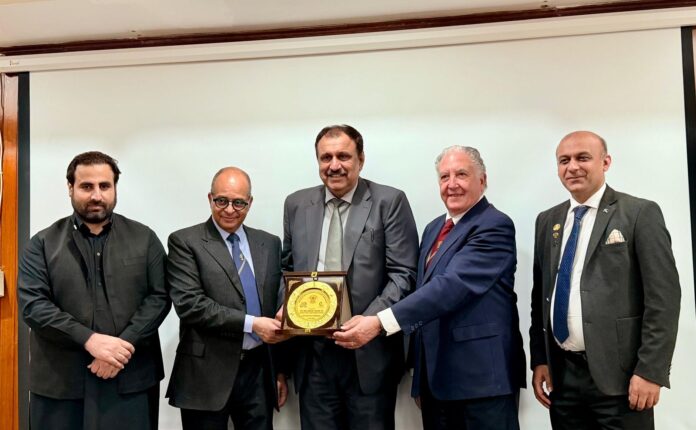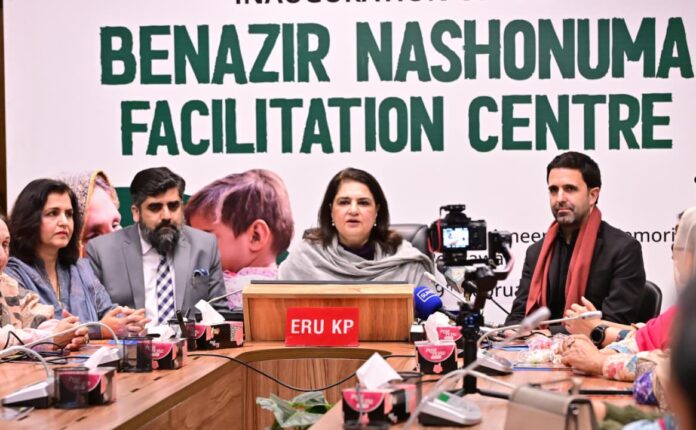There’s a Punjabi proverb that goes, “Life is short, so eat, drink, and enjoy,” or in simpler terms, “First fill the stomach, then do everything else!” Our society seems to embody this saying.
Whether it’s a wedding, illness, or even a funeral, the first question always seems to be: where’s the food? Food remains our top priority in every situation. This attitude even extends to our educational institutions, where the cafeterias often seem busier than the classrooms.
Food is viewed as the most important part of life, while libraries and bookstores are deserted, reflecting the lack of historical, ideological, and ethical understanding among our youth. The article points to something we all observe around us: why do people in Pakistan prefer food over books? Food may be our primary need, but why do we, as a nation, prioritize eating over reading and learning? Why do we spend more time on entertainment than on intellectual growth? What has caused our culture to shift from valuing education toward an emphasis on food and leisure?
Our culture places a significant emphasis on food and entertainment rather than education. Watching TV shows for hours seems easier than reading a book or learning something new. Have economic challenges forced us to prioritize immediate gratification over the long-term investment in learning? Why do so few people in our country take joy in reading, while food and entertainment dominate our daily lives? As a nation, what steps can we take to refocus on education and intellectual growth? How has the fast-paced modern lifestyle eroded reading habits, especially among the youth? Are we losing the importance of intellectual growth by continuously prioritizing comfort and leisure?
Food holds cultural and social importance in Pakistan. From family dinners to street food culture, eating is often linked to celebrations, hospitality, and tradition. Noted sociologist Akbar S. Ahmed explains that traditional Pakistani society places high importance on food.
According to the Pakistan Bureau of Statistics, the literacy rate in Pakistan is about 60%. Dr. Pervez Hoodbhoy, a prominent scholar, states, “Pakistan’s education is in crisis because rote learning has taken precedence over critical thinking. Students memorize facts without understanding them, which kills the love for reading and learning.”
The reliance on rote learning means reading is seen by many students as a burden, not an enjoyable experience. Unsurprisingly, outside of school or college, they prefer activities that provide instant satisfaction, like eating or entertainment. But how did we reach this point?
Food provides immediate pleasure, whereas intellectual pursuits, like reading or reflecting on complex topics, require time and patience. Education expert Dr. Faisal Bari notes that Pakistan’s socioeconomic challenges also play a role. When people struggle to meet their basic needs, they prioritize immediate necessities. When you worry about where your next meal will come from, education and intellectual growth take a backseat.
So, this is not only a matter of priority but also of accessibility. Books, libraries, and quality education are luxuries for many people in Pakistan. With the digital divide, especially in rural areas, food becomes a more accessible form of comfort than intellectual pursuits.
Beyond economics, however, social media has further amplified the role of food and entertainment. Every other Instagram post is about the latest food trend, and dining out has become a large part of urban life. Meanwhile, bookstores are disappearing. Scholar Dr. Nauman Haque warns that this shift away from intellectual pursuits is damaging for a society aspiring to progress. He argues that the intellectual culture in Pakistan is waning as critical thinking and curiosity are no longer encouraged. A nation that doesn’t read loses the ability to question and innovate.
This is a valid concern. When people prefer food and entertainment over reading, we lose our capacity for critical thinking, which is essential for progress. Both Dr. Hoodbhoy and Dr. Haque stress that without a culture of learning, we risk stagnation in fields like science, literature, and even politics.
However, this doesn’t mean we should stop enjoying food. It’s part of our identity and culture. The question is one of balance. The renowned Pakistani poet Faiz Ahmed Faiz beautifully captured the need for both intellectual and emotional nourishment, saying:
“Where joy and sorrow become indistinguishable,
I led my heart to that place.”
Faiz’s words remind us that while we enjoy life’s pleasures, like food and companionship, we must also feed our souls with knowledge and insight. In a country like Pakistan, where challenges abound, books offer not just knowledge but also hope, ideas, and solutions.
Pakistan has a rich culture of food, and it’s something to be proud of. But let’s not forget the importance of intellectual growth. Enjoy tea and samosas, but in your free time, pick up a book and nourish your mind. What do you think—can we find a way to balance our love for food with a hunger for knowledge?







